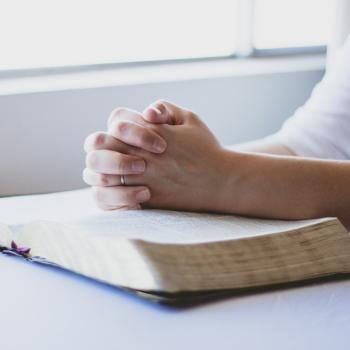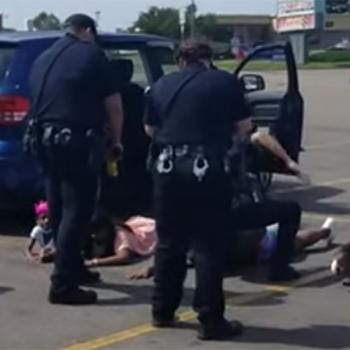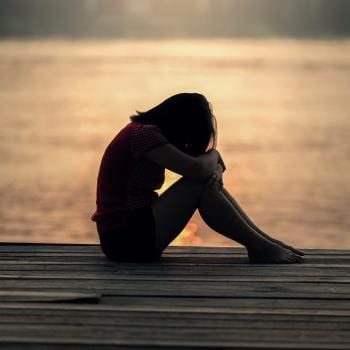There was a time I thought racism was a thing of the past. Even after I confronted my own covert racism, I still thought blatant upfront racism was a thing of the past. I believed that racism had changed and become something less visible but not less real, but recent events have forced me to realize that I was wrong. I’ve watched the aftermath of the Ferguson grand jury decision with rapt attention. I’ve followed the non-indictment of the police officers involved in the John Crawford III’s shooting in Wal-Mart and Eric Gardner’s Staten Island chock-hold death. I’ve cried for the parents of Tamir Rice. But I also read the comments. Never read the comments.
I got to the point over Thanksgiving break where I was so fed up with the responses I was hearing and reading that I threw up my hands and declared, “I give up on white people!” And I’m white. And obviously I don’t give up on white people. But following this conversation over the past few weeks has been both incredibly disheartening and extremely eye-opening. Racism is alive and well in this country. The words used may have changed, but the feelings haven’t.
And I honestly don’t know what to do about this. Just a few days ago I sat in the car sobbing over an NPR report on Tamir Rice. know people talk about the Millennials as the generation that may be able to finally bring change on this issue and others, but who are we kidding? I know too many people of my generation who don’t get it and aren’t open to getting it.
As I cried, Sally sat behind me in the back seat, confused. And so I spoke with her about it. We had talked about slavery before, in the context of American history, but not about racism today. I told Sally that change was still needed, and that her generation would have to be part of it. I told her that her black friends at school will be viewed and treated differently by the police and others. I explained it as sensitively as I could, and I had her complete attention. When I finished, she told me she was in. “I will, Mommy,” she said. “I will do my best to help.”
But more than anything else, I feel disheartened by the responses I have seen from white people who just do not get it, and who are not interested in getting it. I have never felt like we have so far to go on this issue as I do now. One thing I do know is this: People of color should not bear the burden of educating whites who just don’t get it. I have to be a part of that change. I have to be willing to speak out about injustice and call out racism, including covert racism, wherever I see it. I have to try. I can’t change everyone, but maybe, little by little, I can bring some change.
More than anything else, I think too many white people are getting caught up in the details of the Michael Brown case. On some level, this isn’t really about Ferguson. It’s just that Ferguson has provided a spark to ignite a larger conversation. This conversation is not new, as anyone who followed the Trayvon Martin case is well aware. But the conversation is less about the details and more about the broader themes.
When it comes to racism, white people need to understand that people of color know what they are talking about. We may perpetuate racism, whether intentionally or not, but we are not the ones living through it day in and day out. We do not experience it the way people of color do. We need to listen and be willing to learn.
One final thing I want to mention: On Saturday I was listening to Wait Wait Don’t Tell me when a participant was asked to complete a news item that ran something like this: “This week a grand jury failed to indict a police officer for excessive use of force in the death of a black man in ____.” I did a double take for a moment as I ran through three names just off the top of my head. Of course, the actual answer was the Staten Island death of Eric Gardner, because that grand jury decision was the most recent, but still, it was a surreal moment.
With that, I want to offer you some articles for further reading.
On Ferguson Protests, the Destruction of Things, and What Violence Really Is (And Isn’t)
This piece isn’t about the narratives surrounding the murders of Black people by police, which I wrote about back in August when Michael Brown was first killed. This is specifically about narratives around violence.
In the wake of the Darren Wilson decision and the ensuing protests, I’ve been hearing the word “violence” thrown around by journalists and social media commentators alike. It’s strange to me, because when these people use the term violence, they’re not talking about what happened to any of the people named above. The brutal and unnecessary killing of unarmed Black women, children and men by police officers isn’t called “violence” by any of these people. They’re also not talking about protestors of this police violence being tear-gassed or shot with rubber bullets by police for exercising their right to peaceably assemble. That, to these journalists and Twitter trolls, isn’t “violence,” either. What is “violence” to these people? Property damage. Looting. The destruction of things.
Let me say that again, louder, for the people in the cheap seats:
The killing of unarmed Black people, including children, by police: not violence.
The destruction of white people’s things: violence.
I don’t think that word means what you think it means.
To help you get un-confused (because some of you are hella confused), here’s a list of some things that are violence, and one thing that isn’t.
When Force Is Hardest to Justify, Victims of Police Violence Are Most Likely to Be Black
A Pew study found that 63% of white and 20% of black people think that Michael Brown’s death at the hands of Darren Wilson is not about race.
Those people are wrong.
African Americans are, in fact, far more likely to be killed by police. Among young men, blacks are 21 times more likely to die at the hands of police than their white counterparts.
But, are they more likely to precipitate police violence? No. The opposite is true. Police are more likely to kill black people regardless of what they are doing. In fact, “the less clear it is that force was necessary, the more likely the victim is to be black” (source).
Study: Police see black children as less innocent and less young than white children
In a new study published in the Journal of Personality and Social Psychology, researchers asked college students and police officers to estimate the ages of young children who they were told had committed a crime (both misdemeanors and felonies). In both groups, respondents were far more likely to overestimate the ages of young black boys than young white boys; they were also less likely to view black children as innocent.
“Children in most societies are considered to be in a distinct group with characteristics such as innocence and the need for protection,” study author and professor of psychology at UCLA Phillip Atiba Goff said of the study. “Our research found that black boys can be seen as responsible for their actions at an age when white boys still benefit from the assumption that children are essentially innocent.”
Cute Little Black Boys Do Grow Up To Be Black Men, PART II — And Now, They Are Ten
Feel free to post additional articles and posts in the comments.














